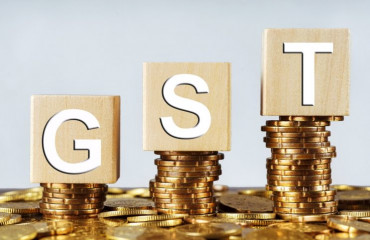
Tata Sons challenges a ₹1,500 crore tax claim settlement on defunct Docomo telecom, arguing that GST is not liable for liquidity damages. The case is ongoing.
Tata Sons challenges a ₹1,500 crore tax claim settlement on defunct Docomo telecom, arguing that GST is not liable for liquidity damages. The case is ongoing.
 Premium
PremiumTata Sons has challenged ₹1,500 crore tax claim settlement on defunct Docomo telecom. During a hearing before the Goods and Services tax official, Tata Sons reportedly challenged ₹1,500 crore tax demand on its $1.27 million settlement in 2017 with NTT Docomo, The Economic Times reported.
The Directorate General of the GST Intelligence, which had raised the tax claim has now moved to the Bombay High Court seeking an extension for the next hearing on a petition filed by the Tatas. The DGGI has asked for a three-month extension since officials need to study the voluminous documents.
During a 16 June hearing, Tata Sons maintained that the tax demand was unfounded as GST is not liable for liquidity damages, ET reported. The court is expected to consider the plea in the first week of July.
An executive said that dues paid by the holding company to Docomo cannot attract GST. Tata Teleservices had paid the settlement amount to Docomo when they had formed a joint venture with the Japanese company. On the other hand, the GST official has claimed that Tata Sons gave a loan to its subsidiary for settling the dispute and therefore was liable to pay taxes on the loan amount.
GST department issued an intimation to Tata Sons in October 2022 and also called a pre-show notice on the tax. Tata Sons in its plea before the Bombay High Court cited a circular issued on 3 August 2022 by the Central Board of Indirect Taxes and Customs for claiming that no GST could be levied on liquidated damages. The cited similar circular on 20 February 2023.
Previously Tata Grouo has said that the payment to the Japanese partner was the outcome of arbitration proceedings in a London Court and hence GST was not applicable.
In 2009, the Japanese telecom giant invested roughly $2.6 billion to buy a 26.5% stake in Tata Teleservices (TTSL).
When the investment was made, the agreement had a "put option" — which meant that when NTT wanted to sell its stake, it had the right to sell it at either "fair value" or half the "acquisition price" (in this case, half of $2.6 billion). By 2014, five years after it made the investment, NTT decided to exit TTSL, thus exercising its put option. Docomo struggled to grow subscribers quickly so it decided to break up with Tatas. The Japanese firm sought ₹58 per share or ₹7,200 crore from Tatas.
However, By 2014, the Reserve Bank of India had come out with a new set of rules that detailed that foreign companies (like NTT Docomo) could only exit investments "at valuations based on return on equity".
Subsequently, the Japanese firm dragged Tatas to international arbitration
But after years of dispute in 2017, NTT DoCoMo said it has received over $1.2 billion (144.9 billion yen) from Tata Sons. the amount received by DoCoMo pertains to the arbitration award and includes interest earned and other costs awarded. Besides all shares in TTSL held by DoCoMo were transferred to Tata Sons and companies
